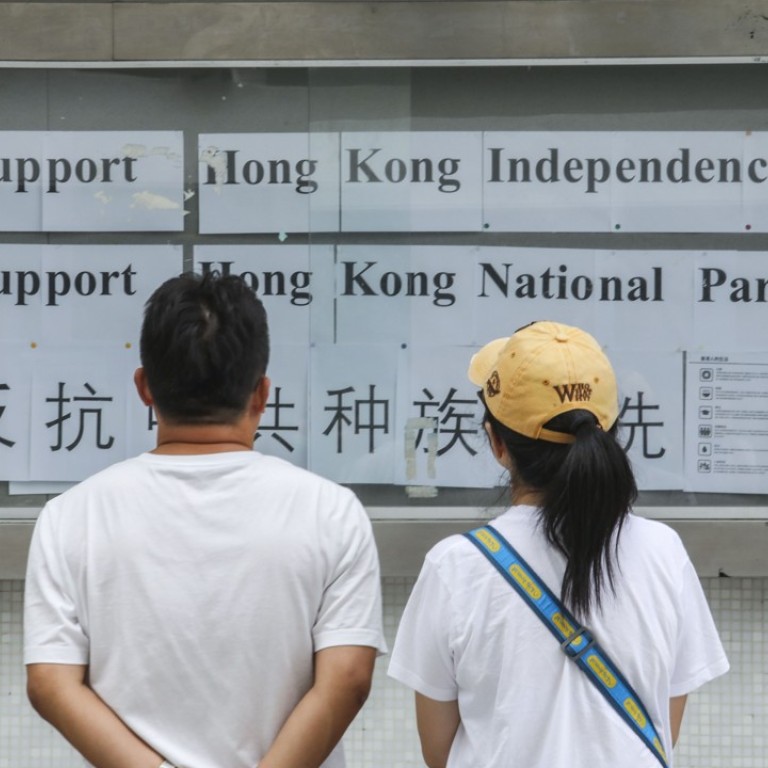Advertisement
Advertisement

Hong Kong independence debate should focus on the causes of discontent rather than the letter of the law
I am writing in response to the article “Pro-independence banners still up at city universities” (September 28). Ever since lawmakers were disqualified from the Legislative Council for taking their oaths improperly in 2016, the controversy over Hong Kong independence has heightened.
Recently, the government banned the Hong Kong National Party on the grounds of maintaining national security, public safety and order and protecting the rights and freedoms of others. Anyone associated with the party, even through donations, could face imprisonment. This harsh approach highlights that the government is serious about cracking down on any activities that advocate independence.
In this case, I support the government because Andy Chan Ho-tin had once claimed that his party would pursue independence at all costs and implied that even violence could be used, although he seemed to backtrack on this during his talk at the Foreign Correspondents’ Club. Chan’s line of thinking is ridiculous and unacceptable and the government is justified in its actions here. I see the banning of the Hong Kong National Party as being less about political bias and more about the nature of the party itself.
Watch: Hong Kong issues unprecedented ban on Andy Chan’s separatist National Party
After this, messages about Hong Kong independence were posted on the democracy wall of the University of Hong Kong and Polytechnic University. This raises questions about whether expressing views on independence offends the Basic Law which defends “one country, two systems” or whether such views are protected by the right to freedom of speech. The answers to these questions are harder to arrive at.
Perhaps, instead, we need to seek deeper insights. We should look for the factors which led to the voice of independence emerging and the reasons these extremists are eager for independence.
Karen Ng Hong-ming, Tsing Yi

Post
